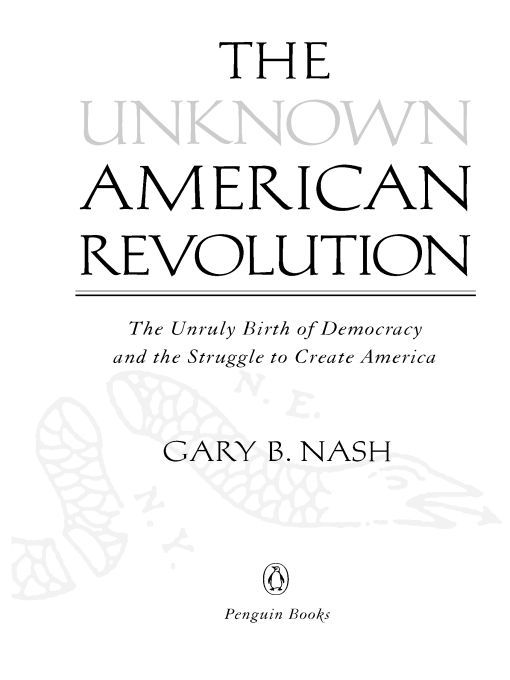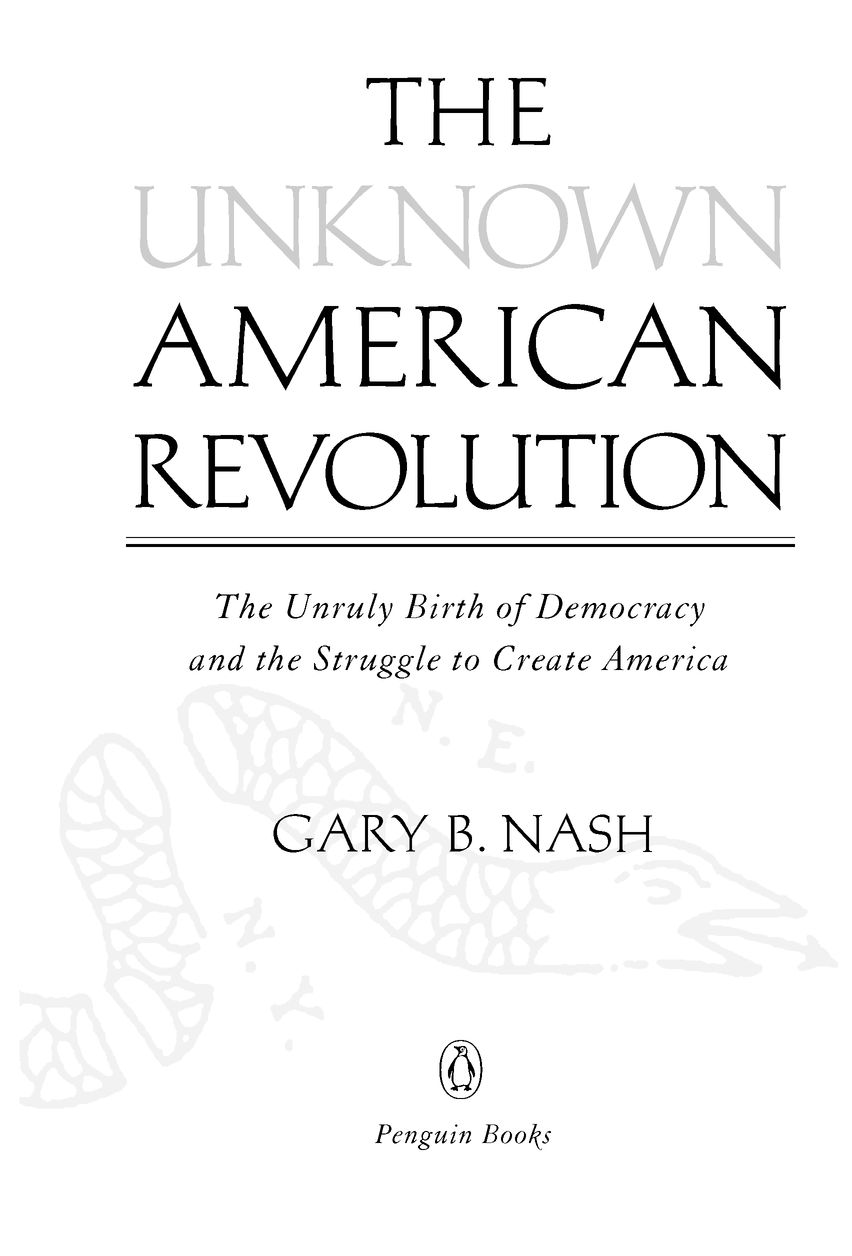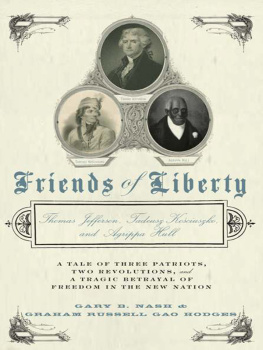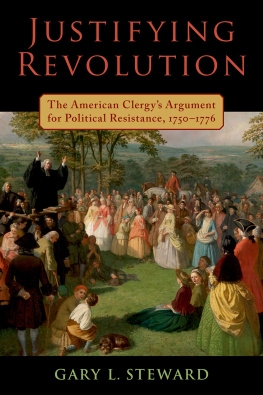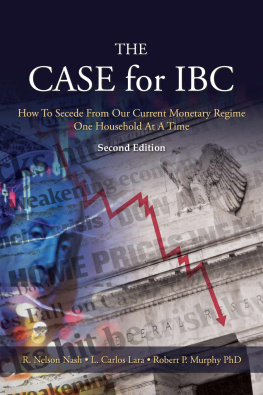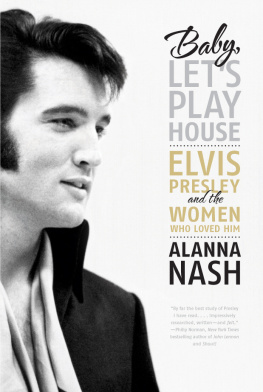Table of Contents
PENGUIN BOOKS
THE UNKNOWN AMERICAN REVOLUTION
Gary B. Nash is professor of history and director of the National Center for History in the Schools at UCLA. A former president of the Organization of American Historians, he has written and edited more than twenty books. He is an elected member of the American Academy of Arts and Sciences, the American Philosophical Society, the Society of American Historians, and the American Antiquarian Society. From 1992 to 1996, he cochaired the National History Standards Project, which culminated with the publication of National History Standards in World and U.S. History. Nash lectures widely and works closely with the National Park Service on a number of projects.
For CYD
Ever my polestar
INTRODUCTION
Salus populi suprema lex (the welfare of the people is the supreme law) Cicero, The Laws, Book 3:8
Truth always makes sad havoc with the frost-work of the imagination and sternly demands the homage of the historians pen.
Benson Lossing, Pictorial Field-BooK of the American Revolution (1850)
WHO SHALL WRITE THE HISTORY OF THE AMERICAN REVOLUTION? Who can write it? Who will ever be able to write it? Thus wrote John Adams in 1815 to Thomas Jefferson, his old enemy but by this time his septuagenarian friend. Nobody, Jefferson replied from Monticello, except merely its external facts... The life and soul of history must be forever unknown.1
Not so. For more than two centuries historians have written about the American Revolution, striving to capture the life and soul of which Jefferson spoke. We now possess a rich and multistranded tapestry of the Revolution, filled with engaging biographies, local narratives, weighty explorations of Americas greatest explosion of political thinking, annals of military tactics and strategies, discussions of religious, economic, and diplomatic aspects of what was then called the glorious cause, and more. Indeed we now have possession of far more than the external facts.
Yet the great menthe founding fathersof the revolutionary era dominate the reigning master narrative. Notwithstanding generations of prodigious scholarship, we have not appreciated the lives and labors, the sacrifices and struggles, the glorious messiness, the hopes and fears of diverse groups that fought in the longest and most disruptive war in our history with visions of launching a new age filling their heads. Little is known, for example, of Thomas Peters, an African-born slave who made his personal declaration of independence in early 1776, fought for the freedom of African Americans, led former slaves to Nova Scotia after the war, and completed a pilgrimage for unalienable rights by shepherding them back to Africa to participate in the founding of Sierra Leone. Why are the history books virtually silent on Dragging Canoe, the Cherokee warrior who made the American Revolution into a two-decade life-sapping fight for his peoples life, liberty, and pursuit of happiness? We cannot capture the life and soul of the Revolution without paying close attention to the wartime experiences and agendas for change that engrossed backcountry farmers, urban craftsmen, deep-blue mariners, female camp followers and food riotersthose ordinary people who did most of the protesting, most of the fighting, most of the dying, and most of the dreaming about how a victorious America might satisfy the yearnings of all its peoples.
In this book the reader will find, I hope, an antidote for historical amnesia. To this day, the public remembers the Revolution mostly in its enshrined, mythic form. This is peculiar in a democratic society because the sacralized story of the founding fathers, the men of marble, mostly concerns the uppermost slice of American revolutionary society. That is what has lodged in our minds, and this is the fable that millions of people in other countries know about the American Revolution.
I ask readers to expand their conception of revolutionary American society and to consider the multiple agendasthe stuff of ideas, dreams, and aspirationsthat sprang from its highly diverse and fragmented character. It is not hard today to understand that American people in all their diversity entertain a variety of ideas about what they want their nation to be and what sort of America they want for their children. Much the same was true two centuries ago. But from a distance of more than two centuries we dont think about our nations birth that way. It is more comforting to think about united colonists rising up as a unified body to get the British lions paw off the backs of their necks. That is a noble and inspiring David and Goliath story, but it is not what actually happened. It is assuredly not the story of radical democracys work during the Revolution.
This book presents a peoples revolution, an upheaval among the most heterogeneous people to be found anywhere along the Atlantic littoral in the eighteenth century. The books thrust is to complicate the well-established core narrative by putting before the reader bold figures, ideas, and movements, highlighting the true radicalism of the American Revolution that was indispensable to the origins, conduct, character, and outcome of the world-shaking event.
By radicalism I mean advocating wholesale change and sharp transformation rooted in a kind of dream life of a better future imagined by those who felt most dissatisfied with the conditions they experienced as the quarrel with Great Britain unfolded. For a reformed America they looked toward a redistribution of political, social, and religious power; the discarding of old institutions and the creation of new ones; the overthrowing of ingrained patterns of conservative, elitist thought; the leveling of society so that top and bottom were not widely separated; the end of the nightmare of slavery and the genocidal intentions of land-crazed frontiersmen; the hope of women of achieving a public voice. This radicalism directed itself at destabilizing a society where the white male elite prized stability because it upheld their close grip on political, economic, religious, sexual, and social power. This radicalism, therefore, was usually connected to a multifaceted campaign to democratize society, to recast the social system, to achieve dreams with deep biblical and historical roots, to put power in the people, as the first articles of government in Quaker New Jersey expressed it a century before the American Revolution.
The pages that follow mostly view the American Revolution through the eyes of those not in positions of power and privilege, though the iconic founding fathers are assuredly part of the story. In reality, those in the nether strata of colonial society and those outside respectable society were most of the people of revolutionary America. Without their ideas, dreams, and blood sacrifices, the American Revolution would never have occurred, would never have followed the course that we can now comprehend, and would never have reverberated around the world among oppressed people down to the present day. Disinterring these long-forgotten figures from historys cemetery, along with their aspirations and demands, along with the events and dramatic moments in which they figured so importantly, is offered as an antidote to the art of forgetting.
Many of the figures we will encounter were from the middle and lower ranks of American society, and many of them did not have pale complexions. From these ranks, few heroes have emerged to enter the national pantheon. For the most part, they remain anonymous. Partly this is because they faded in and out of the picture, rarely achieving the tenure and status of men such as John Adams and John Hancock of Boston, Robert Morris and Benjamin Franklin of Philadelphia, Alexander Hamilton and John Jay of New York, or Thomas Jefferson, Patrick Henry, and George Washington of Virginia, all of whom remained on the scene from the Revolutions beginning to the very end. But, although they never rose to the top of society, where they could trumpet their own achievements and claim their place in the pages of history, many other men and women counted greatly at the time. Lived inequalities, writes the Haitian philosopher-historian Michel-Rolph Trouillot, yield unequal historical power.2 The shortness of their lives also explains the anonymity of ordinary people. It is safer to conduct a revolution from the legislative chamber than fight for it on the battlefield, healthier to be free than enslaved, and one is more likely to reach old age with money than with crumbs.

